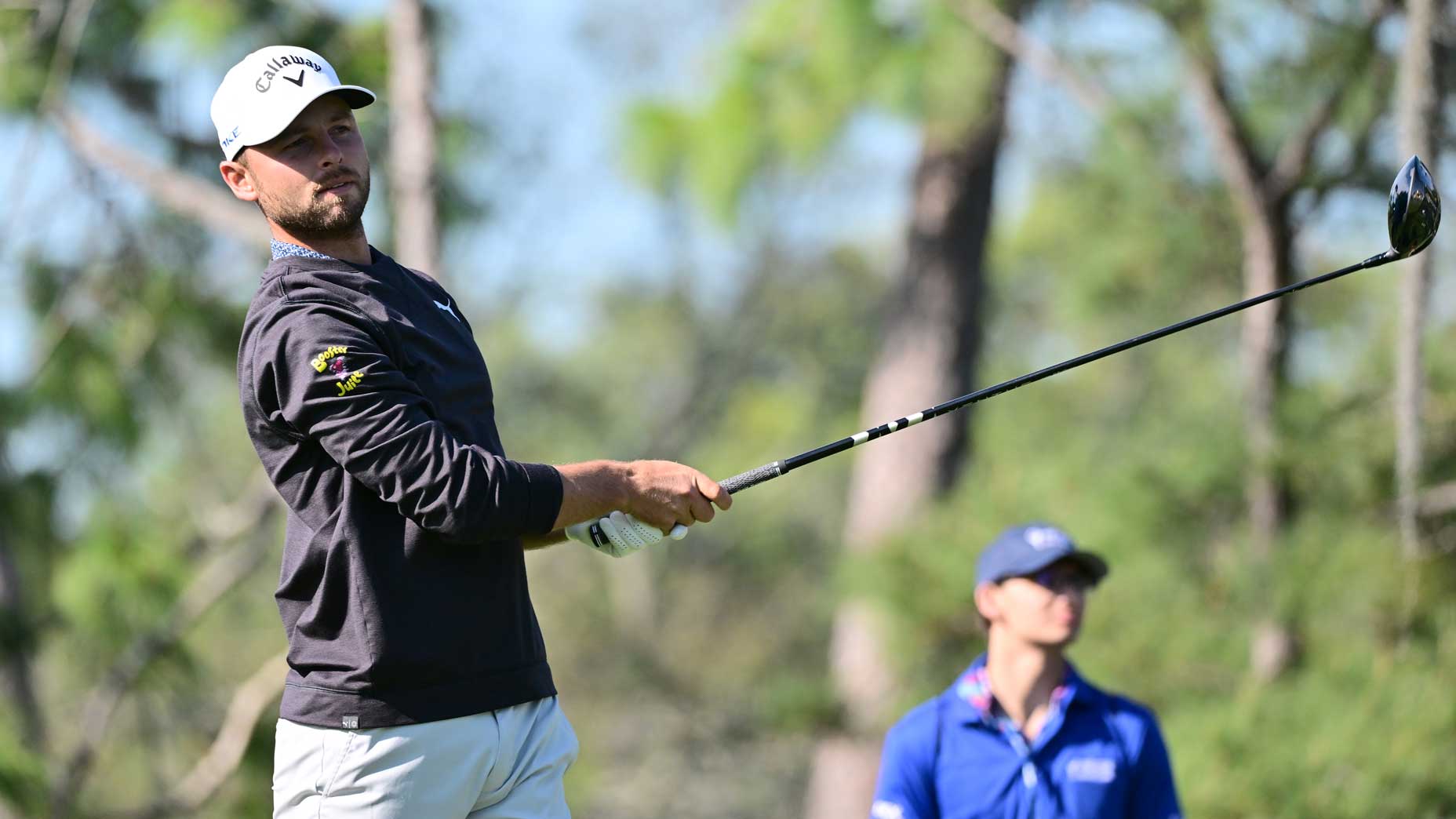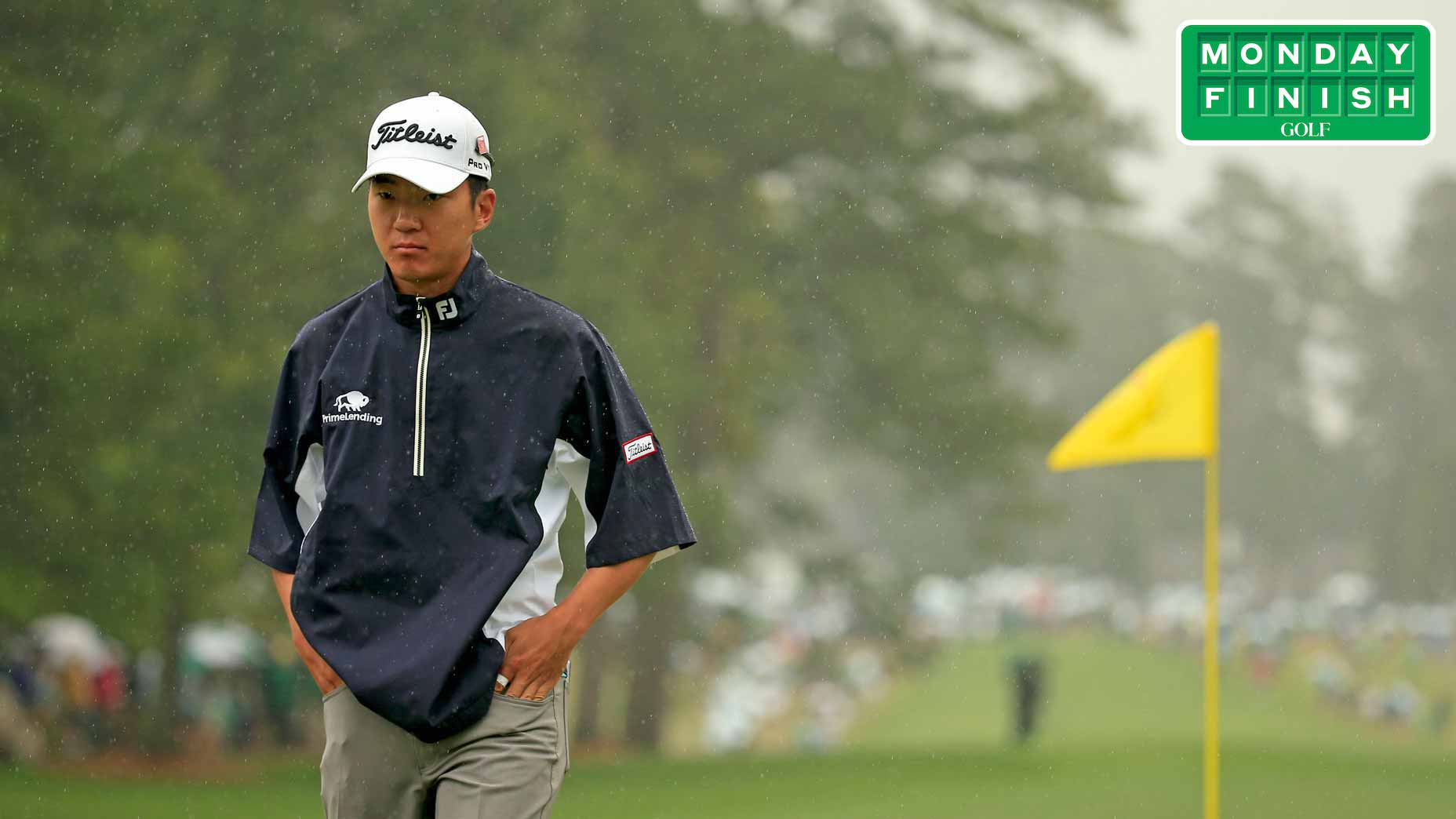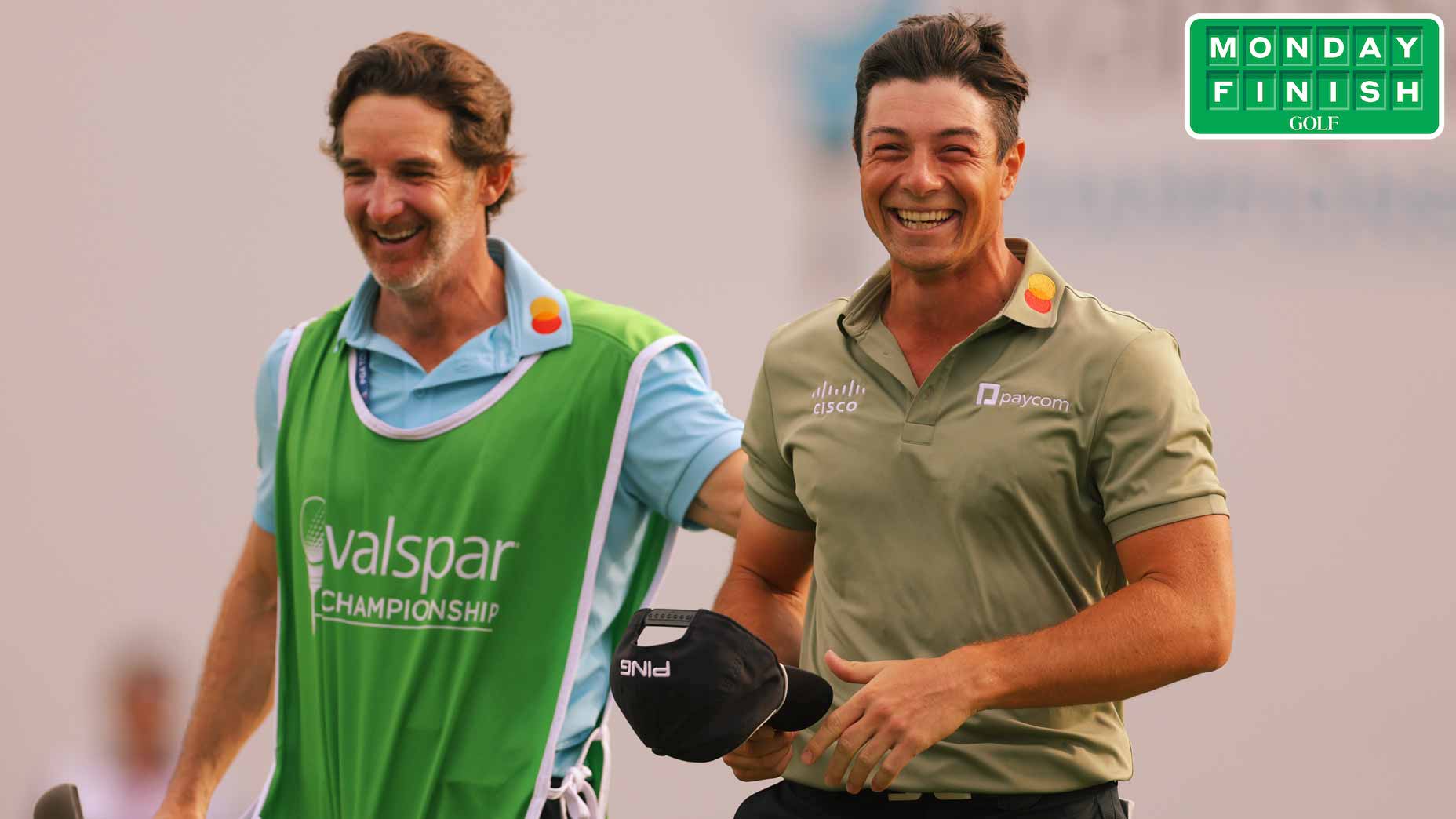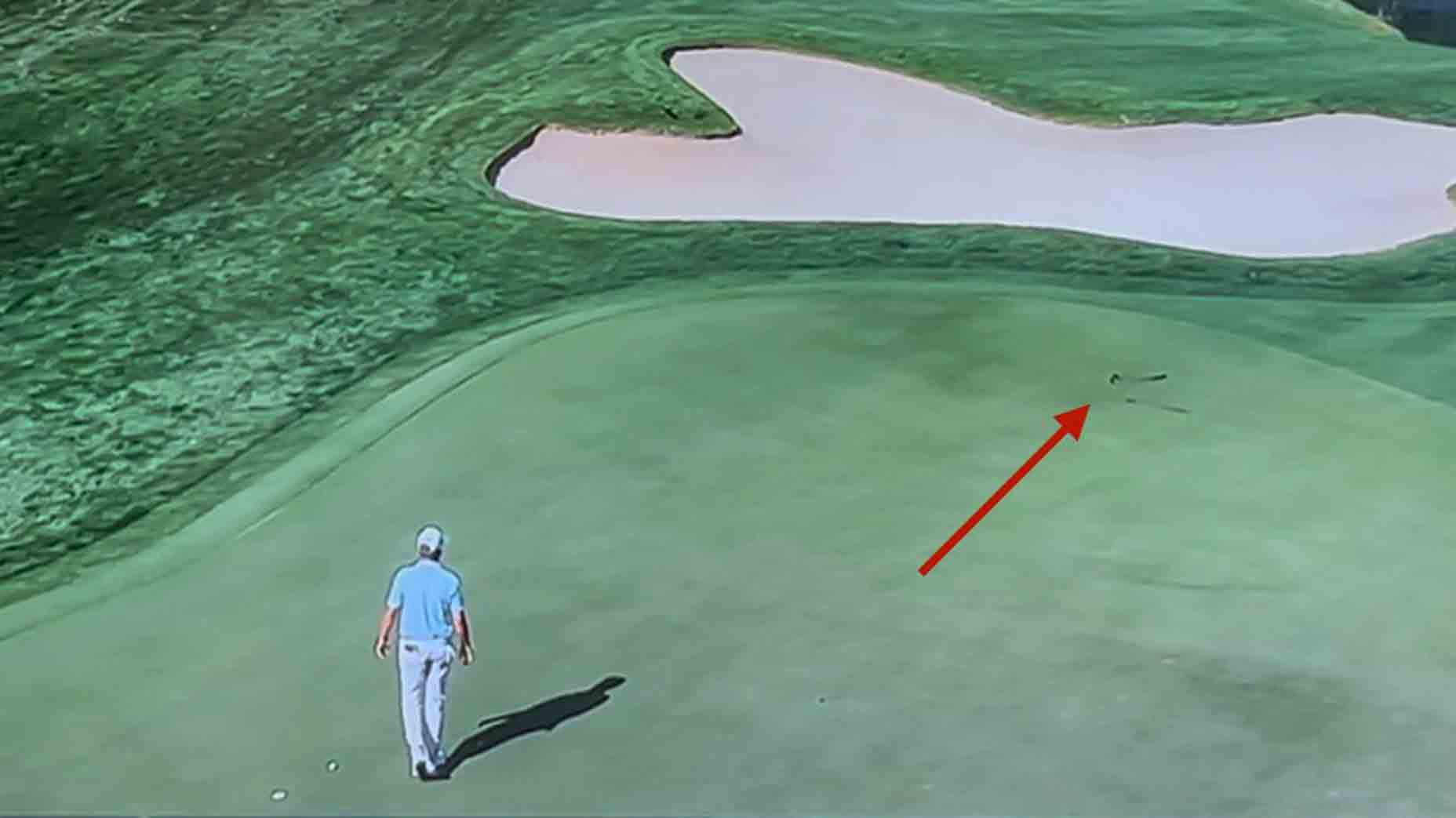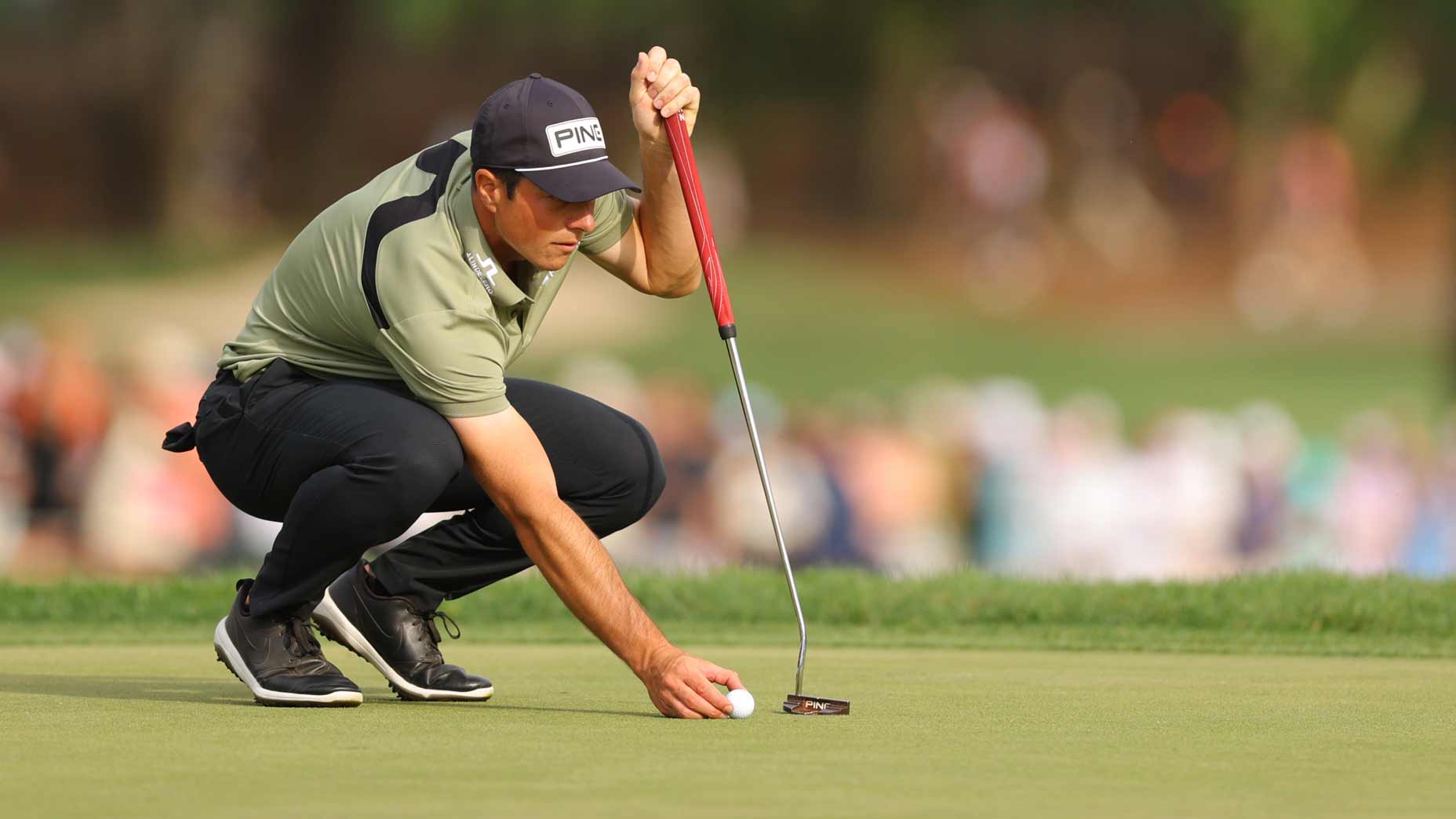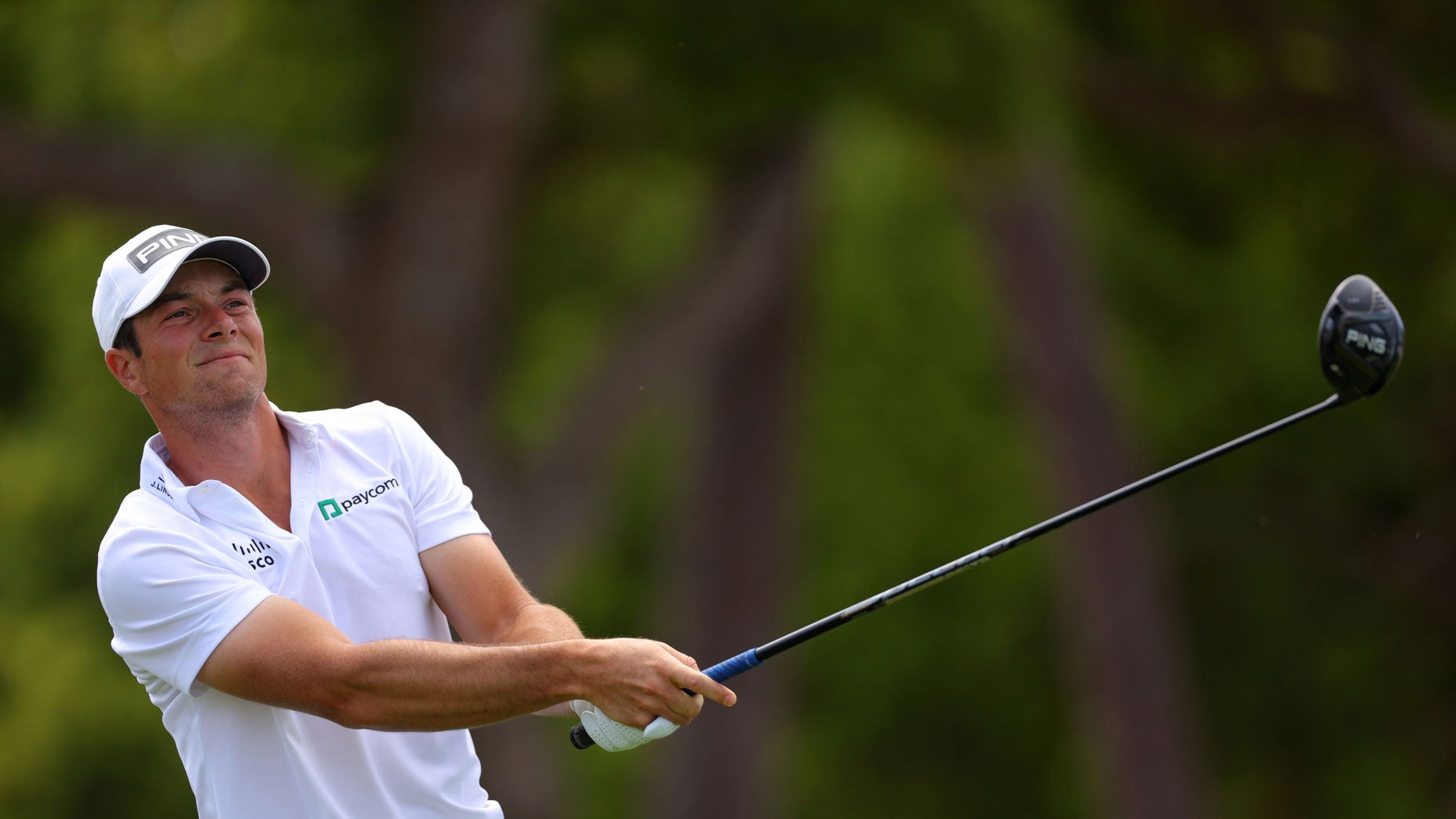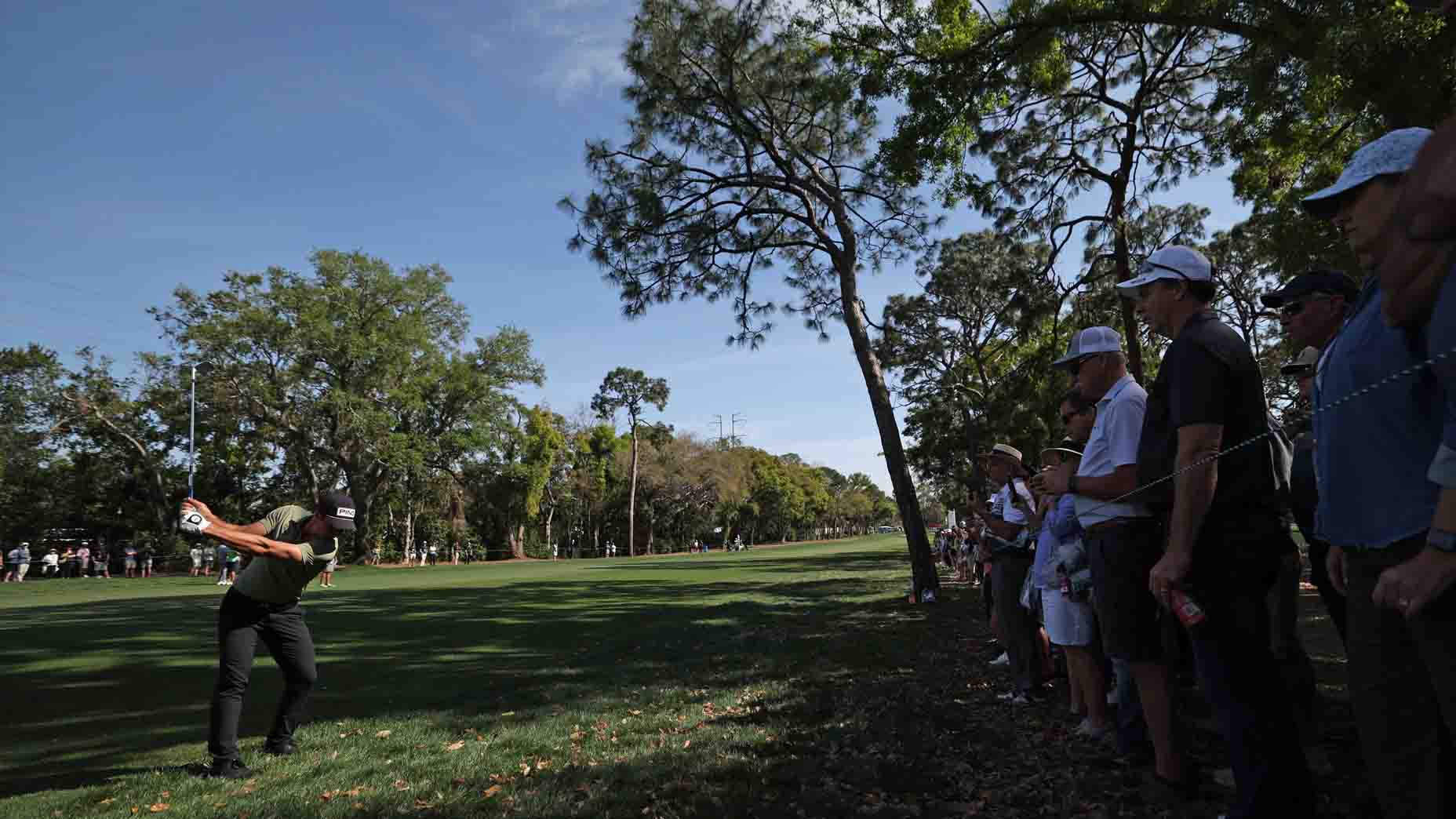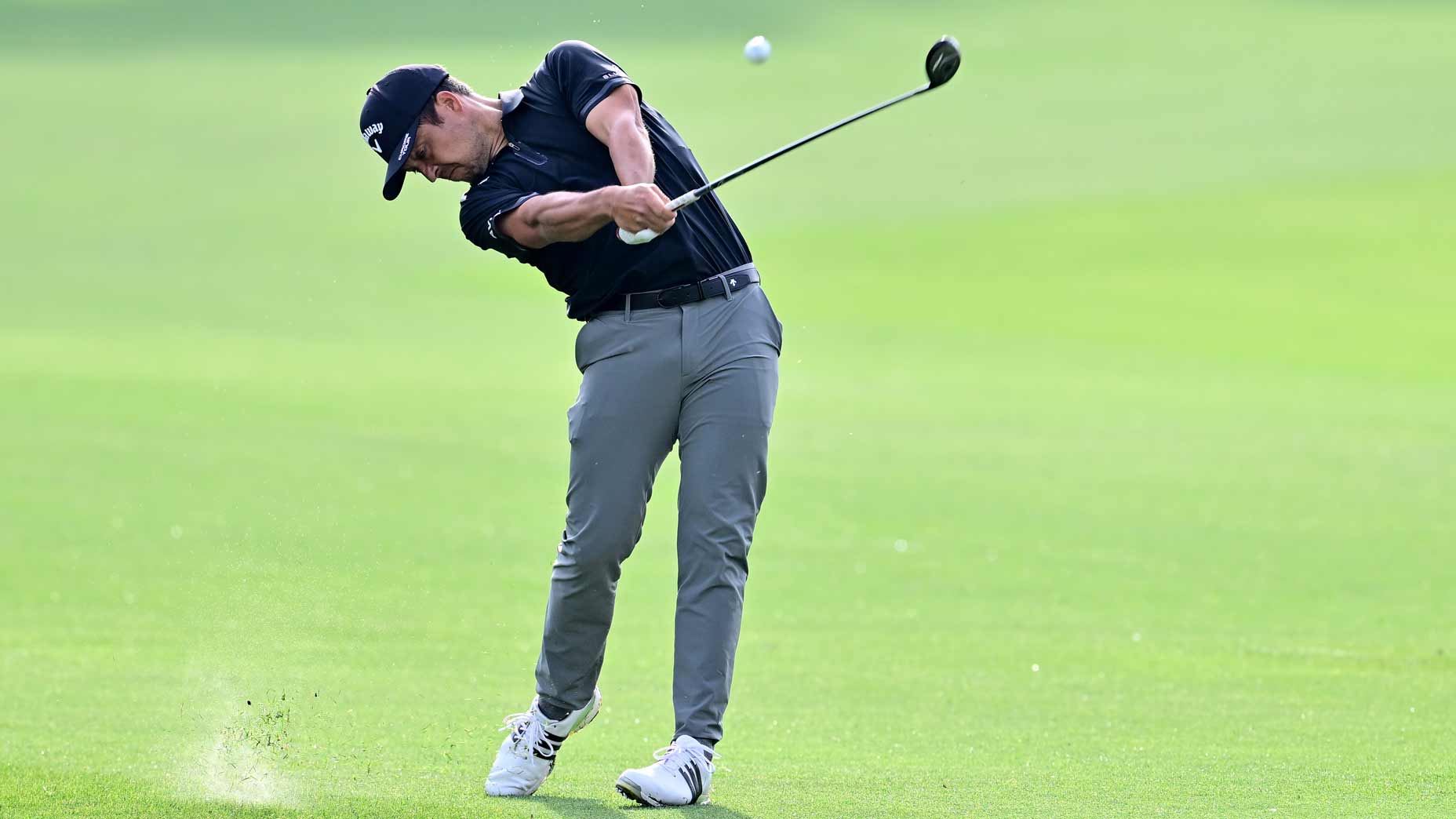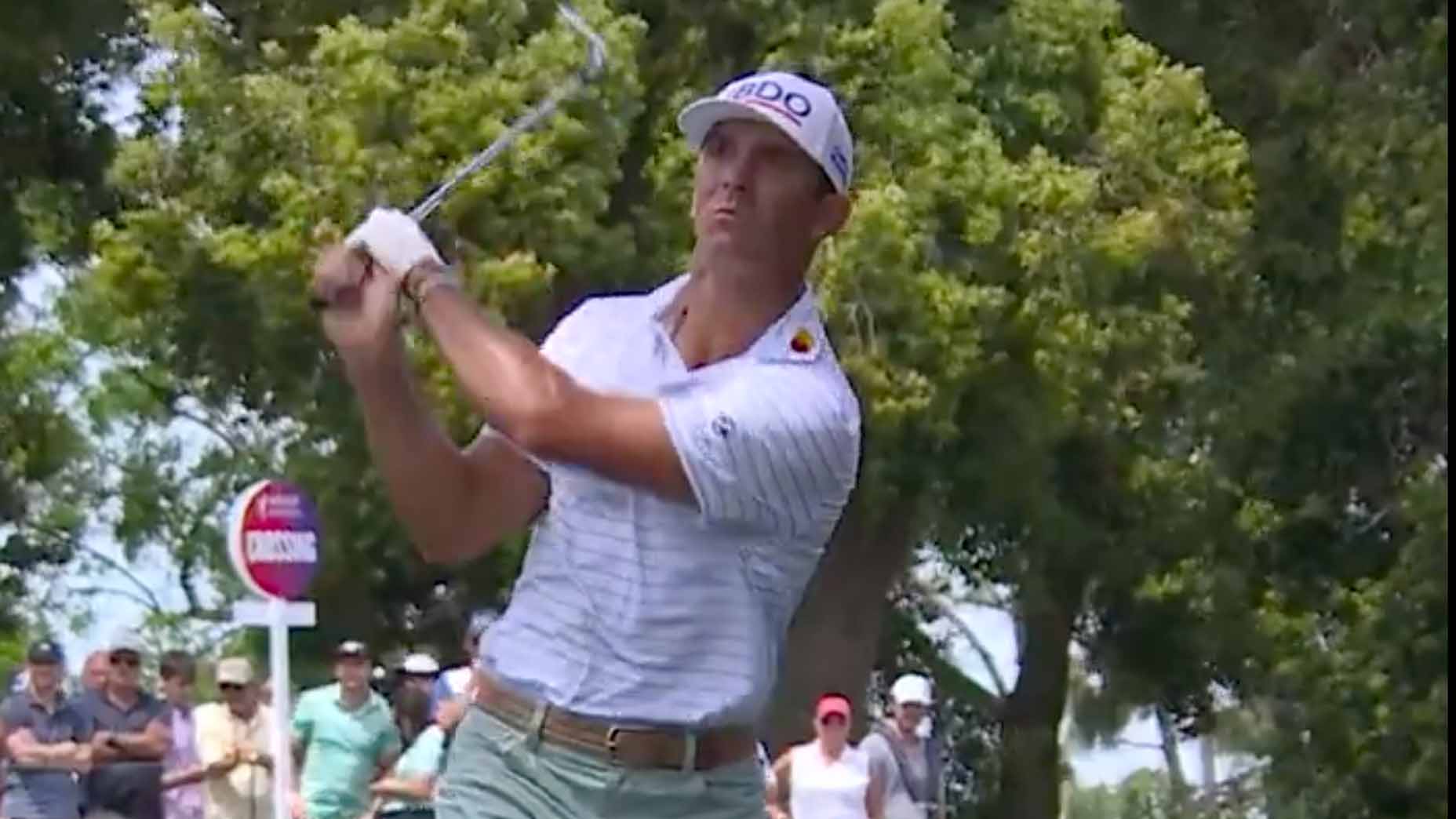For Adam Svensson, the first three weeks of the Florida Swing were dreadful.
He’d finished the West Coast Swing with a top-10 at the Genesis Invitational, one of the biggest events on the PGA Tour schedule. But then Svensson arrived in Florida and missed the cut at the Cognizant Classic. He missed the cut at the Arnold Palmer Invitational. And he missed the cut at the Players. Cut, cut, cut.
Svensson, a 30-year-old Canadian ranked No. 70 in the world, called it a “rough stretch.” And he wasn’t exactly sure where it came from. He grew up on bentgrass and this is Bermuda; maybe that was part of it. He didn’t seem overly concerned.
“I dunno,” he told reporters at this week’s Valspar Championship. “I’m not too sure. I always seem to play poorly in this stretch and then I kind of pick it up at the end of the year. I’m not too sure why. It just happens.”
How hard is it, a reporter followed, to figure that sort of thing out? And does he ever think about sitting a few of these events out?
“Not really,” he said. “I have a pretty good, positive attitude. I feel like if you’re playing bad, you’ve got to play good sometime, so just keep my head down and keep going.”
That’s the quote that stuck with me. If you’re playing bad, you’ve got to play good sometime. It is, of course, demonstrably untrue for most golfers. You can keep your head down and keep chugging through rounds and never do what Svensson can with a ball and club and scorecard. But it was a window into the mindset of a PGA Tour pro. Shrug at the bad stuff, knowing the good stuff is coming.
Plenty of people can pull off the second part; we all turn into optimists once we’re thinking about our next tee time. Tee sheets are filled with those people. (Blackjack tables are, too, though let’s set that aside for the minute.) But the patience to plow through missed cut after missed cut, avoiding despair, trusting that something better is on the horizon? That’s a professional mindset. So when Svensson shot five-under 66 to open the Valspar Championship, he wasn’t shocked. You’ve got to play good sometime.
Peter Malnati is another pro who left the Players Championship feeling disappointed. He’d shot six-under 66 on Saturday at TPC Sawgrass to climb inside the top 25 — but then he shot nine-over 81 on Sunday and plummeted to T68, finishing ahead of just two players.
But he, too, arrived in west Florida with the bad stuff in his rearview.
“Sunday was — I just kind of had to chalk that up as just one of those days you get in golf,” Malnati said. “I really was playing well. Sunday, I didn’t do anything well, I was off in all facets of the game.” He got to work on Tuesday in preparation for the Valspar. He was pleased with his practice session; it felt like he hadn’t missed a beat.
And then he opened with a round of four-under 67.
Post-round, a reporter asked him if he believed in momentum. Malnati, not one to skimp on sentences, gave it his best.
“Momentum. In physics it’s a real thing, of course. So yes, I believe in that sense,” he said. But then he shared a story from his rookie year on the PGA Tour that was worth the retelling.
“I was talking to Geoff Ogilvy, who is a very thoughtful guy, and I think smart, and he said, ‘Golf is so unfair because when you need to play well is when it’s the hardest to play well.’ He says, ‘If you play really well, you don’t need to play well anymore and it gets easy to play well.’
Malnati added that he has never felt secure enough with his place in the game to get past the pressure to play well, which makes sense: though he’s kept his PGA Tour card for most of a decade, his career-best world ranking is No. 143 and he’s only played in three major championships. So he may not know the safety of playing after you’ve won the Players Championship, say, and secured your PGA Tour future. Still, he knows confidence.
“I would say confidence in golf is stepping on the first tee knowing you’re going to make six birdies, because if you know you’re going to make six birdies you’re not worried about making a mistake,” he said.
I liked that. It sounds like a chicken-or-the-egg dilemma — if you need the confidence that you’ll make birdies to make birdies, where do you get that confidence to begin with? — but it makes sense, in a golf sort of way. If you’re not afraid of mistakes you’re less likely to make them.
Consider Kevin Roy. Last year he was a 33-year-old PGA Tour rookie. On the surface, his debut season didn’t look like much: he made just nine cuts in 31 starts and lost his card. But he didn’t see it that way. Instead he pointed out that eight of those missed cuts came by a single shot.
“It was definitely a challenge. It hurt mentally, but you can look at it two different ways. You can look at it the bad way and think you played bad, but I tried to take it the positives out of it. I wasn’t playing that bad of golf,” he said.
In other words, he was closer than it might have looked from the outside. Roy said it took the help of a mental coach to see things from that perspective, but he’s grateful he did. And he’s taking full advantage of a sponsor’s invite this week; through two rounds he’s at four under par, just two shots off the lead.
“I’m going to try to keep the pedal down and see where it takes us,” he said.
Finally let’s head to the PGA Tour Champions and steal some lines from one of golf’s very best quotes, Padraig Harrington. Dive in:
“You know, it shouldn’t differ, but I see myself — when I played a couple of PGA Tour events so far this year and next week, I panic a little bit. You know, I’ll do a little bit extra practice, I’ll do a little bit extra of this, I’ll just try that much harder, which is exactly what I shouldn’t do, but it’s human nature. That’s the difference with — not the results, but the way I perform at a Champions Tour event and a regular event. At a regular event, you’re just under pressure. When I come to this event, I feel like if I play my own game, if I turn up and be Padraig Harrington, I have a chance of winning. When I go to a regular event, and this is not a good thing, I feel like I need to be the best version of Padraig Harrington. I feel like I’ve got to play great and I can’t afford any mistakes. That’s not when you play your best. You play your best when you’re very comfortable with who you are, when you’re just being yourself and doing your thing.”
So there you have it. Want to be a professional golfer? Start with some patience. Add a little more patience, while you’re at it. Combine that with some optimism. Some big-picture thinking. Some confidence. A lot of confidence. Confidence bordering on delusion. When you step on the tee, know you’re going to make six birdies. If you don’t make six birdies, assume you’ll make six the next time out. Fear nothing. Know good things are coming. Package that up, get yourself an all-world golf game (that should be the easy part) and you’ve got a fighting chance. Oh, and make sure to be yourself. Not some mythical, too-perfect best version of yourself. Just be yourself.
Just as long as “yourself” can play golf as well as Padraig Harrington.
See you at Q-school.
